Newsletter archive
Newsletter February 2026
EPO at the 37th German Cancer Congress

Dear colleagues,
we are pleased to share that Michelle Zimmer will be presenting a scientific poster at the 37th German Cancer Congress.
The poster introduces a microfluidic Organ-on-Chip model of the blood–brain barrier (BBB), enabling physiologically relevant in vitro assessment of drug penetration and therapeutic potential. This innovative platform supports the development of novel treatment strategies for glioblastoma by improving the predictive value of preclinical BBB models.
"Meet the Expert" at the German Cancer Congress
We are also delighted to invite you to meet Jens Hoffmann at the German Cancer Congress. As a leading expert in experimental pharmacology and oncology, Jens will be attending the meeting and is looking forward to connecting with colleagues from academia and industry.
? Schedule a meeting with Jens Hoffmann here:
We look forward to exchanging ideas and discussing innovative preclinical approaches with you in Berlin.
Best wishes,
Jens Hoffmann, Wolfgang Walther & Antje Wengner
Newsletter January 2026
Join us at EPO's Spring Meeting 2026

Dear Colleagues, Friends and Companions,
The EPO team cordially invites you to the 5th EPO Spring Meeting, which will take place on May 20, 2026 at the historic Berlin-Brandenburg Academy of Sciences and Humanities.
Continuing the tradition of this symposium, we will once again provide a forum for scientists, clinicians, and industry professionals to exchange current research findings and discuss key challenges and developments in cancer modelling.
An excellent line-up of scientific speakers will present recent advances across multiple areas of preclinical and translational research, including:
- Pediatric oncology: Anton Henssen (ECRC, Charité / MDC)
- Antibody–drug conjugates: Svea Becker (Tubulis)
- Targeted and personalized chemotherapy: Ana Pérez-López (TU Berlin)
- Novel CAR cell therapies: Niels von Wardenburg (Charité)
- Targeted radiotherapeutics: Urs Hagemann (Bayer)
Please refer to the scientific program for further details.
A coffee break and a joint lunch, accompanied by a view over the Gendarmenmarkt, will be included as networking opportunities alongside the scientific sessions.
As space is limited, please register now with Katja Bolle. We look forward to seeing you in Berlin on May 20th!
Best wishes,
Jens Hoffmann, Wolfgang Walther & Antje Wengner
Confirmed speakers are:
- Prof. Dr. Anton Henssen – ECRC, Charité Berlin / Max Delbrück Center
- Dr. Svea Becker – Tubulis GmbH
- Dr. Ana Maria Pérez López – TU Berlin
- Dr. Niels von Wardenburg – Charité Berlin
- Dr. Urs Hagemann – Bayer AG
- Dr. Lars Winkler – EPO Berlin
- Dr. Maria Stecklum – EPO Berlin
- Dr. Diana Daberkow – EPO Berlin
Newsletter December 2025
Season’s Greetings & Thank You

As we approach the end of the year, we want to take a moment to thank you sincerely for your trust in partnering with us to accelerate your preclinical oncology drug development programs. This year has been marked by meaningful progress in preclinical oncology research, and we are proud to have supported advances across a wide range of tumor types, therapeutic modalities, and both in vivo and in vitro disease models.
2025 Highlights
This year brought several important scientific contributions from our team, underscoring our commitment to advancing preclinical oncology research. Highlights include:
Scientific Publications
- 13 Peer-reviewed, high impact publications EPO has co-authored
- Most prominent the paper main-authored by our colleague Simone Rhein published in “Blood” on how a CD22-specific T-Cell Receptor enables effective adoptive T-Cell therapy for B-cell malignancies
Events & Scientific Presentations
Throughout 2025, we were proud to share our scientific expertise at a select number of national and international conferences as well as at numerous industry gatherings. In addition to our own presentations, we attended numerous scientific and partnering events throughout the year to stay closely connected with the oncology community in science and business.
This year’s key highlights:
- AACR Annual Meeting: EPO presented 2 scientific talks and 3 posters, showcasing our latest findings in tumor biology, therapeutic response, and advanced in vivo and in vitro models.
- EPO Spring Symposium: Our annual scientific symposium in Berlin brought together partners and collaborators for in-depth discussions on emerging approaches in preclinical oncology and the translation of novel modalities and also on future collaborations.
Expansion of Our Service Offering
In 2025, we continued to expand and refine our preclinical oncology platform to better support your service programs. New models, enhanced technologies, and extended capabilities now enable even more precise, data-driven decision-making throughout drug development.
New and expanded capabilities include:
- Additional well characterized PDX, including pediatric and new orthotopic models
- Extended in vitro platforms, including live cell imaging and lab-on-chip blood brain barrier models
- Strengthened capabilities for immuno-oncology, Bites, ADCs, and targeted cell therapies
- Extended capabilities for targeted radionuclide therapy
- Blaze Ultramicroscopy and other mechanism-validation technologies
If you’d like to revisit the key topics we covered this year, you can find them all collected in our 2025 newsletter compilation.
Looking ahead, we will continue building on this momentum.
Thank you once again for your trust, collaboration, and continued partnership throughout the year 2025!
We look forward to driving more advancements together in the coming year and wish you a restful holiday season and a successful start to the New Year 2026.
Best Regards,
Jens Hoffmann (CEO), Antje Wengner (CSO), Wolfgang Walther (CSO)
EPO Berlin-Buch
Newsletter September 2025
Targeted Radionuclide Therapy (TRT) at EPO
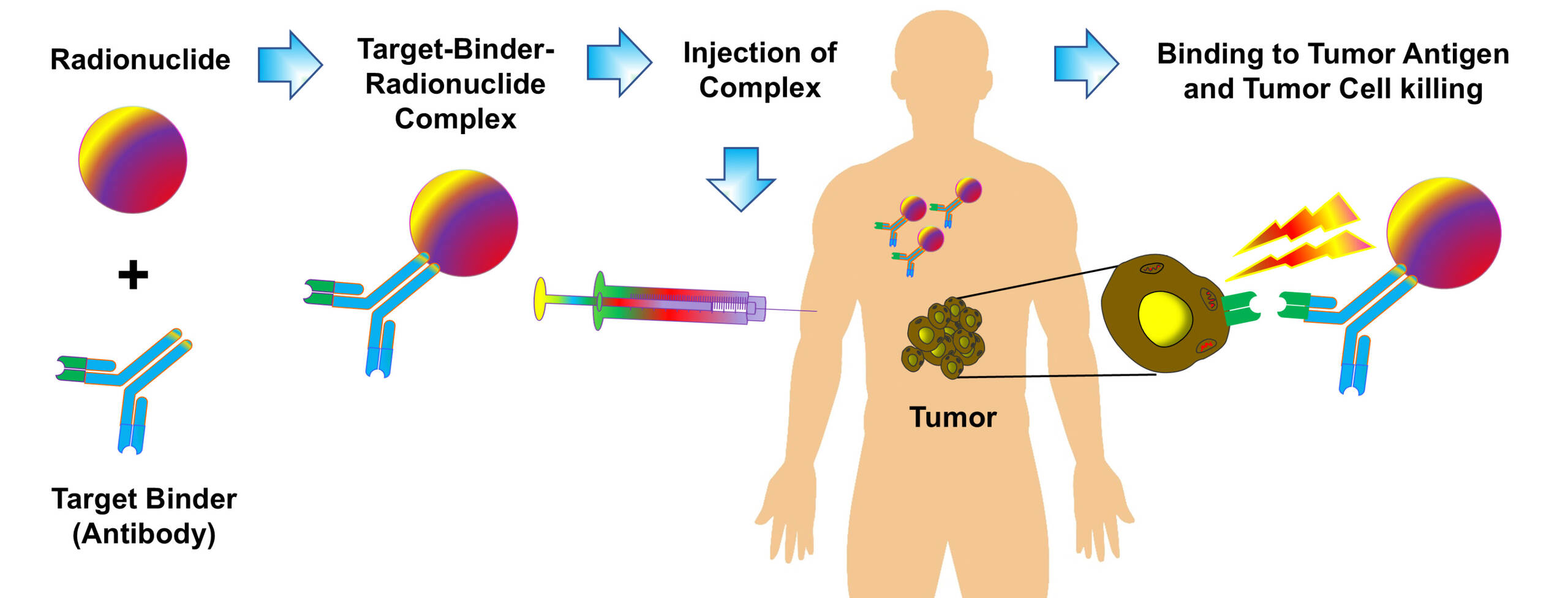
EPO offers advanced capabilities for the assessment of novel radiotherapeutics in oncology research. Our platform supports the development of targeted radionuclide therapies using a range of alpha, beta, and gamma-emitting radioisotopes for precise tumor targeting and effective cancer cell eradication in vitro and in vivo.
Mechanisms of Action
Radiopharmaceuticals are tumor-targeting agents that deliver therapeutic radioisotopes directly to cancer cells, leading to:
- Lethal DNA damage via localized radiation from radionuclide decay
- Direct target blockade of tumor-specific receptors or pathways
- Immune system-mediated cytotoxicity induced by radiolabelled immunomodulators
EPO's Capabilities in TRT Research
EPO offers a robust platform to evaluate efficacy and pharmacokinetics of radiopharmaceuticals:
1. Efficacy Studies
- Conducted in a wide range of patient-derived xenograft (PDX) tumor models
- Available for multiple cancer indications in immunocompromised mice
- Models can be engineered with human immune or stem cell engraftment
2. Biodistribution Studies
- Quantitative analysis of radionuclide distribution across tumor, blood, and organ tissues
- Gamma photon detection using the Wizard 1480 Gamma-Counter (PerkinElmer)
3. PET/CT Imaging
- Qualitative/quantitative analysis and visualization of the of
- radionuclide dissemination in whole body in collaboration with our partner The Charité University of Medicine Berlin, Germany
4. Ex Vivo Tissue Analysis
- Collection and processing of tissues for further molecular and histological analyses
Approved Radionuclides at EPO
EPO is licensed to work with a broad spectrum of radionuclides for preclinical research: 227Th, 223Ra, 225Ac, 213Bi, 3H, 14C, 90Y, 177Lu, 68Ga, 111In, 125I
See also Zboralski et al. Eur J Nucl Med Mol Imag 2022
Partner with EPO
With its established expertise in preclinical oncology and the latest infrastructure for radionuclide research, EPO is your ideal partner for the development and assessment of next-generation targeted radiotherapeutics.
Join us at the EANM 2025 in Barcelona. Let us know if we can schedule a meeting to discuss potential ways how EPO can accelerate the preclinical development of your novel Radiopharmaceuticals. Contact Dr. Sylvia Niebrügge and Dr. Antje Wengner for details.

Best Regards,
Jens Hoffmann (CEO), Wolfgang Walther (CSO), Antje Wengner (CSO)
EPO Berlin-Buch
Newsletter August 2025
Empowering Oncology Breakthroughs
Discover EPO’s Preclinical Capabilities & Services
EPO (Experimental Pharmacology & Oncology Berlin-Buch GmbH) is a trusted Contract Research Organization (CRO) with over 27 years’ experience in driving innovation in Preclinical Oncology and Immuno-oncology Research and Development.
Founded in 1997, EPO is spin-off from the Max Delbrück Center for Molecular Medicine. Since our inception, we have:
- Completed 20,000+ Client Studies
- Contributed to 600+ Peer-reviewed Publications
- Supported numerous Therapeutics Candidates from Discovery to FDA Approval
- Built long-term collaborations with Global Pharma, Biotech, and Academic Institutions
Whether you're optimizing treatment strategies or validating novel biomarkers, EPO is your partner in accelerating oncology research.
Laboratory Infrastructure & Capabilities
Lab & Facility Highlights:
- 1300 m² (12,000 sqf) of State-of-the-art Laboratory Space
- AAALAC-accredited Animal Facility
- Cleanroom Technology for Sterile Procedures
- Safety Level 2 (S2) containment
Core Laboratory Units:
- Molecular Biology & Protein Analysis – qPCR, qRT-PCR, Western Blotting
- Cell Biology – 2D/3D culture, stem cells, real-time analysis (IncuCyte)
- FACS and Cell Sorting – MACSQuant® Analyzer 16 and Tyto®
- Compound Analytics – Formulation development and QC
- In Vivo imaging – Bioluminescence, Vevo Micro-Ultrasound
- Radiation and Radiopharmaceuticals – MultiRad Efficacy, Biodistribution (Gamma Counting)
- Histology – FFPE Blocking, Sectioning, H&E, IHC, Pathological Examination
- Tumor Bank – Large-scale CDX/PDX/Syngeneic Collection and Data Banking
Robust Oncology Models & Preclinical Services

- 1,000+ PDX Models across 17 tumor types, including hematological malignancy and pediatric tumors.
- 200+ CDX Models with validated endpoints
- Syngeneic Mouse and Rat Models
- Flank, Orthotopic, Disseminated, and Metastasis Models
- Humanized Mouse Models (PBMC, NK, T cells, CD34s) – 20+ years of experience humanizing mice in-house
Our Tailored Services Include:
- Efficacy Studies for Small Molecules, Biologics, ADCs, Cell-based Therapies, and RIT
- PK/PD Profiling and Bioavailability Assessment
- Tox, Safety, MTD and Biodistribution
- Optimization of dosing, scheduling, and drug combinations
- Biomarker Discovery & Validation
- Pathway Analysis to explore drug resistance or sensitivity
- Companion Diagnostic (CDx) Development
By Scientists, For Scientists
Our team of 50+ employees, including 15+ PhDs, brings deep scientific insight and operational flexibility.
Leadership Includes:
- Dr. Jens Hoffmann, CEO
- Dr. Antje Margret Wengner, CSO
- Prof. Dr. Wolfgang Walther, Senior CSO
We are Proud Contributors to Cancer Research Through:
- Partnerships in oncology programs such as: ITCC P4, EFRE, IMI, OncoTrack
- Publications in Leading Scientific Journals
- Presentations at Major Oncology Conferences
Why Partner with EPO?
- End-to-End Custom Study Design – Tailored to your development goals
- Fast Turnaround Times – Agile execution to meet tight timelines
- Transparent, Responsive Communication – Stay informed at every step
- True Scientific Partnership – Collaborative spirit with a focus on impact
Whether you're a Startup, Academic lab, or Global Pharma Company — EPO-Berlin is here to move your science forward.
Get in Touch
For more information, contact us today on to discuss how we can accelerate your therapeutic oncology development.
Best Regards,
Jens Hoffmann (CEO), Wolfgang Walther (CSO), Antje Wengner (CSO)
EPO Berlin-Buch
Newsletter July 2025
Panel Screening Opportunity in TNBC Models

Dear Colleagues,
we’re offering a unique opportunity to evaluate your compound across
a panel of 14 well-characterized triple-negative breast cancer
(TNBC) models. This joint screening initiative enables you to benefit
from shared controls, streamlined workflows, and competitive pricing —
all while generating robust, translatable efficacy data. Optional add-on
services such as IHC, PK/PD, and histology are also available to deepen
your insights. EPO’s expertise in TNBC modeling and drug evaluation was
recently featured in an oral presentation at AACR 2025 [Abstract] highlighting our leadership in translational oncology research.
Test the efficacy of your compound(s) in a panel of 14 TNBC PDX models
Enrollment is now open through August 15th
FEATURES
- Access to a curated panel of 14 well-characterized triple-negative breast cancer (TNBC) models, representing diverse molecular and phenotypic profiles.
- Each model is backed by RNA sequencing data, mutations and tissue bank samplesModels have been pre-tested with clinically relevant compounds
- Standardized 8-week study duration, with tumor growth inhibition as the primary efficacy read-out
- Competitive pricing available when selecting the full 14-model panel screen, leveraging shared controls and streamlined workflows for maximum value.
- Option to include additional services such as IHC, PK/PD, and histology and sampling (frozen, FFPE, blood) tailored to support deeper mechanistic insights and biomarker discovery
Please contact us directly to discuss your compound of interest, reserve your slot, or request a detailed study proposal.
Best regards,
Jens Hoffmann (CEO), Wolfgang Walther (CSO), Antje Wengner (CSO) EPO Berlin-Buch
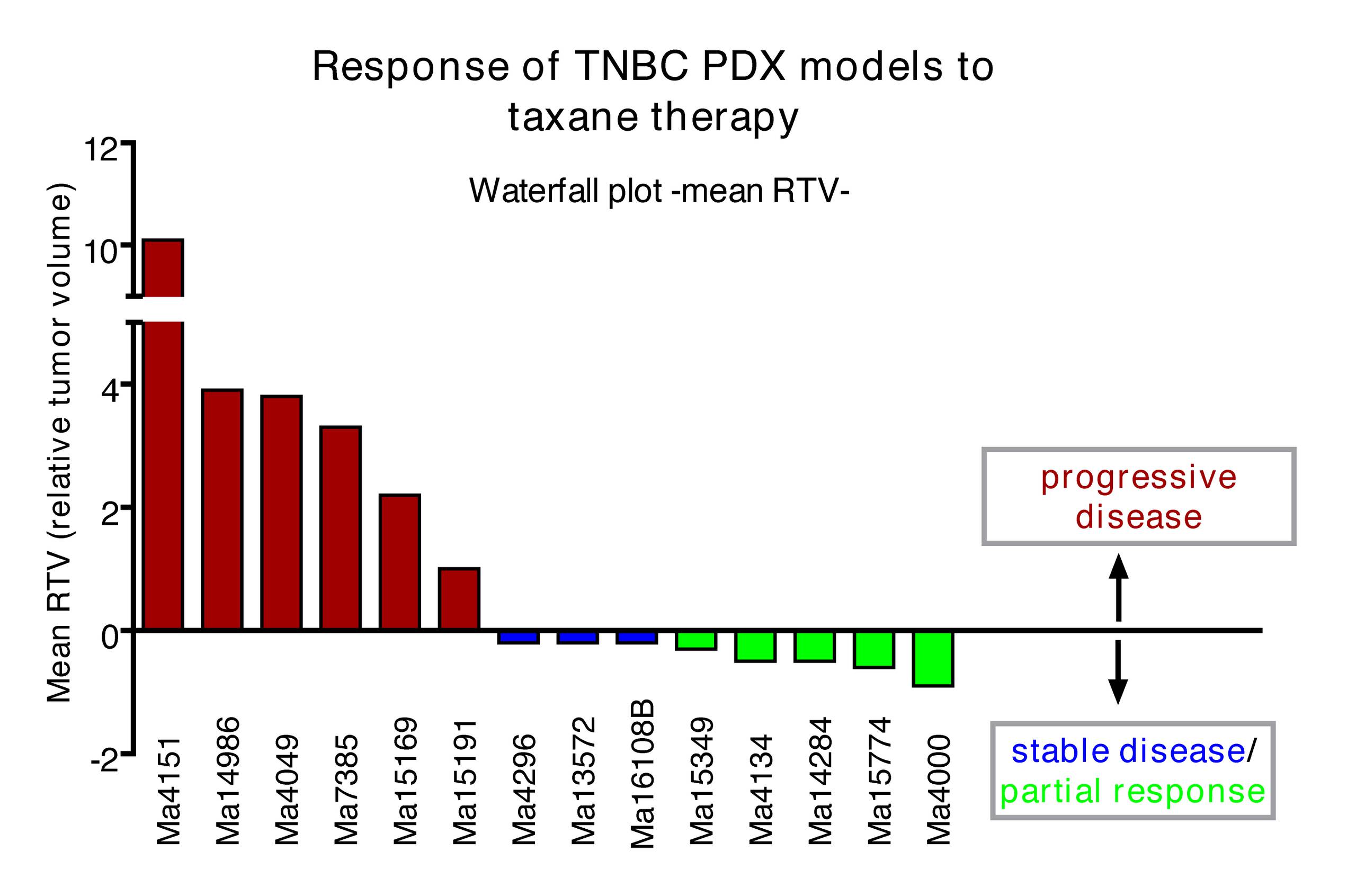
Related Talks and Publications
Talk AACR, Chicago 2025
- Triple negative breast cancer (TNBC) PDX models for preclinical investigation of novel therapies
Hoffmann J, Behrens D
Abstract
Publications
- Targeting SHP2 phosphatase in breast cancer overcomes RTK-mediated resistance to PI3K inhibitors.
Heynen GJJE, Lisek K, Vogel R, Wulf-Goldenberg A, Alcaniz J, Montaudon E, Marangoni E, Birchmeier W. Breast
Cancer Res. 2022;24(1):23 (Weblink) - MiR-1287-5p inhibits triple negative breast cancer growth by
interaction with phosphoinositide 3-kinase CB, thereby sensitizing cells
for PI3Kinase inhibitors.
Schwarzenbacher D, Klec C, Pasculli B, Cerk S, Rinner B, Karbiener M, Ivan C, Barbano R, Ling H, Wulf-Goldenberg A, Stanzer S, Rinnerthaler G, Stoeger H, Bauernhofer T, Haybaeck J, Hoefler G, Jahn SW, Parrella P, Calin GA, Pichler M.
Breast Cancer Res. 2019;21(1):20 (Weblink)
Newsletter June 2025
Gene and Cell Therapy: Updates and Innovations

Dear Colleagues,
Gene and Cell Therapies continue transforming cancer treatment in
clinic by offering new ways to target tumors and boost immune responses.
EPO remains a leader in supporting this field through our dedicated
preclinical models and delivery platforms.
Gene and Cell Therapies: Shaping the Future of Oncology
While surgery, chemotherapy, and radiotherapy remain central to cancer treatment, gene and cell therapies have emerged as clinically relevant alternatives. Today, nearly two-thirds of global gene and cell therapy trials focus on cancer. At EPO, these cutting-edge approaches are supported through robust pre-clinical services for both in vitro and in vivo testing.
These therapies work by enhancing anti-tumor immunity or directly targeting tumor cells to inhibit growth, prevent metastasis, induce cell death, or resensitize tumors to conventional therapies. Strategies include T-cell engineering (TCR or CAR T cells), gene editing, RNA-based gene suppression (shRNA, siRNA, miRNA, AS-ODNs), suicide gene therapy, and oncolytic virotherapy.
Advancing Gene and Cell Therapy at EPO
With decades of experience, EPO has contributed to numerous projects involving cytokine delivery, RNA-based therapies, suicide genes, and virotherapy. Recent studies at EPO demonstrated significant anti-tumor effects of clostridium enterotoxin gene therapy in colon and pancreatic cancer models. These efforts utilize advanced in vivo delivery methods, including LNPs, electroporation, jet-injection, and viral vectors (retroviral, lentiviral).
We also conduct TCR and CAR T cell studies to assess anti-tumor activity in CDX and PDX models. We have generated real-time efficacy data in vivo using luciferase-tagged leukemic and lymphoma models. And we are exploring CAR NK cell therapies in neuroblastoma models, expanding the spectrum of cellular immunotherapies.
Additionally, EPO supports the production of gene-modified T and NK cells using lentiviral or gammaretroviral transduction. And we complement our Gene and Cell Therapy studies through in vitro assays include real-time cytotoxicity testing with Incucyte® and cytokine profiling via flow cytometry.

Related Selected Publications, which used EPO models and service
- Blood (2024): CRISPR-mediated integration of ζ-deficient CARs into CD3ζ enabled potent antitumor activity in T and NK cells, supporting off- the-shelf CAR-T/NK therapies with reduced GvHD risk and physiological CAR regulation. https://pubmed.ncbi.nlm.nih.gov/38493479/
- Cancers (2021): Claudin-targeted suicide gene therapy using Clostridium perfringens enterotoxin was evaluated in pancreatic cancer PDX models at EPO-Berlin, demonstrating strong oncoleaking-mediated tumor eradication and synergy with chemotherapy. https://pubmed.ncbi.nlm.nih.gov/34503203/
- Eur J Pharm Sci (2021): RIP-encoding suicide nanoplasmids were evaluated in vitro and in EPO-supported neuroblastoma models, showing antitumor efficacy and tolerability—marking the first in vivo application of nanoplasmids for RIP-based gene therapy. https://pubmed.ncbi.nlm.nih.gov/34958884/
- J Immunother Cancer (2021): A mutation-specific TCR targeting MyD88 L265P enabled selective killing of lymphoma cells in vitro and in vivo, supporting precision-engineered TCR-T therapy for B-cell malignancies. https://pubmed.ncbi.nlm.nih.gov/34330762/
- Cancers (2021): CD28-based CAR T cells showed superior trafficking, expansion, and antitumor efficacy over 4-1BB CARs in neuroblastoma and ovarian carcinoma models using a mouse-in-mouse system at EPO-Berlin. https://pubmed.ncbi.nlm.nih.gov/33801448/
- J Control Release (2018): A saporin suicide gene delivered by sapofectosid-enhanced nanoplexes showed antitumor activity and good tolerability in EPO-supported neuroblastoma PDX models. https://pubmed.ncbi.nlm.nih.gov/29481823/
- BMC Cancer (2017): A translation-optimized CPE vector achieved rapid claudin-3/-4-dependent cytotoxicity and selective tumor necrosis in colon cancer PDX models at EPO-Berlin. https://pubmed.ncbi.nlm.nih.gov/28193196/
- Mol Oncol (2014): MIDGE® vectors encoding TNF-α enhanced chemosensitivity and significantly inhibited tumor growth in A375 and melanoma PDX models at EPO-Berlin, supporting clinical development. https://pubmed.ncbi.nlm.nih.gov/24503218/
- Hum Gene Ther Methods (2012): Intratumoral MIDGE®-TNF-α jet- injection yielded high tumor-specific uptake and rapid systemic clearance, supporting safety and tumor-localized gene expression in nonviral gene therapy. https://pubmed.ncbi.nlm.nih.gov/22924532/
- Mol Ther (2008): Jet-injection of shRNA plasmids reversed MDR1- mediated resistance in drug-resistant tumors, restoring doxorubicin sensitivity in vivo in a clinically relevant nonviral delivery approach. https://pubmed.ncbi.nlm.nih.gov/17878902/
For more information, contact Turn on Javascript! to learn how we can support your Gene and Cell Therapy program.
Best regards,
Jens Hoffmann (CEO), Wolfgang Walther (CSO), and Antje Wengner (CSO) EPO Berlin-Buch
Newsletter May 2025
Repurposing an Antispasmodic Drug for Brain Cancer Treatment: A New Avenue in Glioblastoma Therapy
In collaboration with the University of Magdeburg, Clinic for Surgery, Department of Molecular and Experimental Surgery (Prof. Ulf D. Kahlert), the EPO Berlin-Buch research team has explored the anti-cancer potential of the FDA-approved antispasmodic drug Trihexyphenidyl (THP) for treating glioblastoma. Our findings were published in Frontiers in Pharmacology last year: PMC11461351.
Glioblastoma remains one of the most aggressive and treatment-resistant brain tumors. One key challenge in its treatment is the presence of so-called cancer stem cells, which are thought to drive tumor recurrence and poor prognosis. Prof. Kahlert and his team—renowned experts in cancer stem cell biology—utilized advanced glioblastoma spheroid models representing the mesenchymal transcriptional subtype to assess THP’s anti-proliferative activity. A wide range of in vitro assays confirmed THP's ability to inhibit cancer cell growth.
Moreover, transcriptomic profiling of treated glioblastoma cells revealed significant changes in gene expression and metabolic signaling pathways, suggesting possible molecular mechanisms behind the drug's action.
Encouraging results were also seen in in vivo experiments coordinated by EPO Berlin-Buch, using patient-derived xenograft (PDX) models with mesenchymal glioblastoma stem cells engrafted into the brains of immunocompromised mice. In some cases, THP treatment led to a measurable response, highlighting its therapeutic potential.
Importantly, this study aligns with recent advances in neurotransmitter signaling in glioblastoma (see Vargas-Toscano et al., 2020a; Venkataramani et al., 2019), suggesting that THP may interfere with synaptic-like connections between neurons and tumor cells, offering a novel therapeutic angle.
This project is part of a long-term partnership aimed at building a pan-cancer in vitro and in vivo modeling platform for difficult-to-treat cancers, not only within the CNS but also including pancreatic cancer (PDAC), esophageal squamous cell carcinoma (ESSC), and secondary tumors of the prostate. Stay tuned for more updates from this exciting and rapidly evolving collaboration. Kahlert will also present at upcoming EPO Spring meeting in June in Berlin.
Newsletter April 2025
Join us at EPO's Spring Meeting 2025

Dear Colleague,
The EPO team cordially invites you to attend the EPO 2025 Spring Symposium on June 11th at the historic Langenbeck-Virchow-Haus in the heart of Berlin.
After last year's successful meeting, we are pleased to once again provide a platform for scientists, clinicians and industry professionals to share their latest findings and discuss the challenges and opportunities in tumor modeling.
During the day, scientific presentations will be accompanied by networking opportunities and a joint lunch for in-depth discussions. We look forward to welcoming you and sharing our knowledge and expertise on new developments in tumor modeling. Please find a list of all speakers below and details in the attachment.
As space is limited, please register with Turn on Javascript!. We look forward to seeing you in Berlin on June 11th!
Best wishes,
Jens Hoffmann & Wolfgang Walther & Antje Wengner
CEO & CSO & CSO at EPO
Confirmed speakers are:
Ulf Kahlert – Universität Magdeburg
Peña Quim – RWTH Aachen
Rogier Versteeg – Charité Universitätsmedizin Berlin
Michael Launspach – Charité Universitätsmedizin Berlin
Markus Tiemann – FU Berlin
Joshua Alcaniz – EPO GmbH Berlin-Buch
Michelle Zimmer – EPO GmbH Berlin-Buch
Maria Stecklum – EPO GmbH Berlin-Buch
Mathias Dahlmann – EPO GmbH Berlin-Buch
Antje Wengner / Wolfgang Walther / Jens Hoffmann – EPO GmbH Berlin-Buch
Newsletter March 2025
AACR 2025 | Chicago

Join EPO for a Dinner Reception at the River North Bistro
Dear Colleague,
Are you looking forward to attending AACR 2025 and experiencing the vibrant heart of downtown Chicago?
We’re excited to invite you to a special evening reception at River North Bistro on Sunday, April 27, 6:00pm - 9:00pm, just steps away from Chicago’s iconic Magnificent Mile.
Enjoy a relaxed atmosphere with handcrafted cocktails and a selection of delicious bites while catching up with colleagues and friends. We’ll also share the latest updates from EPO and how our innovative preclinical models are advancing oncology drug development.
Secure your spot by signing up with Turn on Javascript!.
We’re also thrilled to showcase our latest scientific advancements at AACR 2025. Visit our poster and talk sessions to discuss your drug development strategies with our experts and learn how EPO’s preclinical tumor models can accelerate your oncology research.
We look forward to seeing you in Chicago!
Best regards,
Jens Hoffmann (CEO), Wolfgang Walther (CSO), Antje Wengner (CSO)
EPO Berlin-Buch
Talks
Triple negative breast cancer (TNBC) PDX models for preclinical investigation of novel therapies
Speaker: Jens Hoffmann (presenting on behalf of Diana Behrens)
Session Date & Time: April 28, 2025 | 2:30 PM – 4:30 PM
Session Type: Minisymposium
Session Category: Tumor Biology
Session Title: Cancer Models: Mechanisms and Therapies
Abstract Number: 3823
Abstract
Molecular profiles and drug response of ITCC-P4 patient-derived xenograft pediatric cancer models for target identification and prediction of targeted therapies
Speaker: Dennis Gürgen
Session Date & Time: April 27, 2025 | 3:00 PM – 5:00 PM
Session Type: Minisymposium
Session Category: Tumor Biology
Session Title: Advancing the Science of Childhood Cancers: From Bench to Bedside
Abstract Number: 1202
Abstract
Posters
The ITCC-P4 consortium: Deep molecular characterization of pediatric cancer xenograft (PDX) models enable prediction of novel personalized combination treatment options for patients with childhood cancer
Presenter: Dennis Gürgen
Session Date & Time: April 27, 2025 | 2:00 PM – 5:00 PM
Session Category: Clinical Research
Session Title: Targeted Therapies and Combinations 1
Location: Poster Section 34 | Board #28
Abstract Number: 840
Abstract
Long-term humanization of NOG mice and next-generation NOG strains to induce lineage-specific differentiation of immune cells for assessment of novel immune cell therapies, check point inhibitors, and immune cell engagers for translational immuno-oncology research.
Presenter: Maria Stecklum
Session Date & Time: April 30, 2025 | 9:00 AM – 12:00 PM
Session Category: Immunology
Session Title: Novel Animal Models / Tumor Antigenicity/Processing and Presentation
Location: Poster Section 37 | Board #4
Abstract Number: 7228
Abstract
Newsletter March 2025
Dear Colleagues,
Oncolytic virotherapy is gaining renewed attention leveraging viruses that naturally or genetically prefer tumor cells, this approach has the potential to reshape cancer treatment strategies.
Why Oncolytic Virotherapy is Rapidly Gaining Interest Among Oncology Researchers:
- Broad Viral Platforms – Both DNA-based (adenovirus, poxvirus, herpes simplex virus) and RNA-based (VSV, coxsackie virus, reovirus, NDV, measles virus) platforms are under investigation for clinical applications.
- Selective Tumor Infection – Oncolytic viruses specifically target and infect tumor cells while sparing healthy tissues.
- Replication & Spread in Tumors – Oncolytic viruses rely on tumor-specific factors, such as p53 mutations, Wnt/beta-catenin signaling, and defective type I IFN pathways, to replicate and propagate within the tumor.
- Immune System Activation – Beyond direct tumor destruction, oncolytic viruses reshape the tumor microenvironment to enhance immune recognition and anti-tumor responses
EPO has a strong track record in preclinical research on oncolytic virotherapy, with extensive experience in both standalone and combination approaches.
Our Expertise Includes:
- Oncolytic Virus Evaluation – Assessing the efficacy of oncolytic viruses across a range of solid tumor models.
- Combinatorial In Vivo Studies – Investigating the synergy between oncolytic virotherapy and immunotherapies, particularly immune checkpoint inhibitors.
- Immune Response Analysis – Conducting in vitro and in vivo assays to measure the impact of oncolytic viruses on anti-tumor T and B cell activity.
Supporting Oncovita’s Measles Virus-Based Therapy
A recent collaboration with Oncovita highlights EPO’s role in advancing oncolytic virotherapy. Our PDX models were instrumental in evaluating Oncovita’s measles virus-based candidate, MVdeltaC, demonstrating robust viral oncolysis and immune engagement.
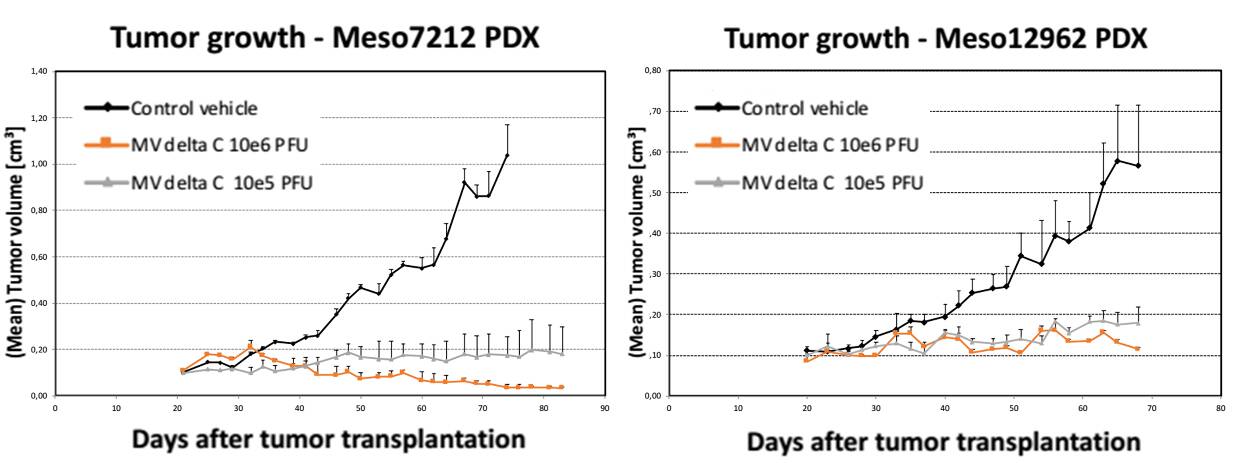
For more details, or to discuss potential collaborations, please contact Turn on Javascript!. We look forward to advancing your oncolytic virotherapy research with our knowledge and expertise.
Best regards,
Jens Hoffmann (CEO), Wolfgang Walther (CSO), and Antje Wengner (CSO)
EPO Berlin-Buch
Newsletter March 2025
Welcome Dr. Antje Wengner!
Dear Colleagues,
We are pleased to announce that Dr. Antje Wengner has joined EPO Berlin-Buch as our Chief Scientific Officer!

With nearly two decades of leadership experience in the pharmaceutical industry, including roles as Senior Scientist, Project Leader, Laboratory Head and expert in in vivo pharmacology in Oncology Research at Bayer AG, Antje brings a wealth of scientific and tec.
Antje studied biology at the Humboldt University in Berlin, received her PhD in cell biology from the Max Delbrück Center in Berlin and completed a post-doctoral position at Imperial College London.
Her in-depth knowledge of oncology drug development and deep expertise in pharmacology, particularly in vivo, will further strengthen EPO's leadership in supporting our clients and their programs. Antje will play a key role in advancing our scientific expertise, expanding our portfolio and driving innovative solutions for our clients, with Prof. Wolfgang Walther guiding the transition over the next few months to ensure a smooth handover.
Please feel free to contact Antje directly at Turn on Javascript!
or via LinkedIn.
We look forward to an exciting journey together!
Best regards,
Jens Hoffmann & Wolfgang Walther
CEO & CSO at EPO Berlin-Buch
Newsletter February 2025
Advancing Radiation Therapy

Dear Colleagues,
EPO is pleased to share exciting updates on our capabilities in radiation therapy. As part of our ongoing commitment to expanding translational models and treatment strategies, we are leveraging our irradiator for advanced radiation therapy applications.
Tumor Irradiation for Preclinical Studies
EPO has successfully conducted numerous customer-driven irradiation studies, demonstrating the effectiveness of our radiation therapy models. Our irradiator delivers controlled dosimetry, ensuring reproducible treatment conditions for reliable study outcomes. This system offers versatile applications, supporting both localized and whole-body irradiation studies. With established preclinical experience spanning decades.
X-Ray Irradiation System
- Faxitron MultiRad 160 X-Ray System: Enables irradiation of animals or cells.
- Irradiation Schedules: Simulate irradiation schedules during the drug discovery process.
- Dose Rates: Irradiate animals or cells at clinically relevant dose rates (up to 300 Gy/min) in a uniform or local field.
Advanced Applications of Radiation Therapy
- Therapeutic Radiation: Evaluate the effects of radiation on tumor cell proliferation.
- Myeloablation: Radiation of immunocompromised mice for supporting human tumor, stroma, and stem cell engraftment.
- Combination Therapy: Radiation therapy combined with chemotherapy, targeted therapies, and immunotherapy.
- Radiation Sensitivity of HNSCC PDX: Evaluation of radiochemo or radioimmuno combinations.
Enhancing Our Radionuclide / Radioimmunotherapy Capabilities
EPO is delighted to announce the launch of new facility capabilities for radionuclide therapy applications. Radioimmunotherapy in preclinical cancer models has a long history at EPO, and we are already approved for many frequently used radioactive isotopes (new approval requests available).
New Radionuclide Configuration Includes:
- Wizard 1480 Gamma-Counter from PerkinElmer
- ISOMED 2010 Dose Calibrator from Nuviatech Healthcare
Both instruments enable highly sophisticated study designs for biodistribution studies and efficacy trials. Precise assessment of organ and tumor activity after dosing with radionuclide compounds is now available to support projects aimed at developments in nuclear medicine.
For more details or to discuss potential collaborations, please contact Turn on Javascript!. We look forward to advancing your oncology research with our expanding radiation therapy portfolio.
Best regards,
Jens Hoffmann & Wolfgang Walther
CEO & CSO at EPO Berlin-Buch
Newsletter January 2025
Tumor Model Updates: Expanding EPO's PDX Library

Dear Colleagues,
Happy New Year! We hope your 2025 is off to a great start. Here at EPO, we are looking forward to another productive year of collaboration and innovation with our partners in industry and academia.
In driving this goal, we are thrilled to share updates on the continuing expansion of our tumor model offerings which now proudly include:
- 1000+ Highly Characterized in vivo PDX Models and in vitro PDX-Derived Cell Lines
- 400+ Pediatric PDX Models – Through collaboration with Innovative Therapies for Children with Cancer Pediatric Preclinical Proof-of-Concept Platform (ITCC-P4).
- Humanized Mouse Models – Engrafted in-house with CD34+, PBMCs, Stromal Cells, and MSCs, ensuring the Highest Quality for Immuno-Oncology Studies.
- Hematological Models – Including Acute Lymphoblastic Leukemia (ALL), Acute Myeloid Leukemia (AML), B-Cell and T-Cell Lymphoma.
- Orthotopic / Metastatic Models – PDX, CDX, and Syngeneic Ortho / Mets Models available with Bioimaging for Luc Tagged Lines.
- CDX and Syngeneic Models – Covering All Major Tumor Types: Breast, Lung, Colon, Fibrosarcoma, Leukemia, Renal Cell, Melanoma, etc.
All of our models have been rigorously validated and characterized yielding sharable Proteomic, Transcriptomic, RNA-Seq, Molecular, and Treatment Response Data.
Highlighted below are some recent publications demonstrating the value of our PDX Models and their Characterization Data in advancing oncology drug development.
- Cancers, 2023: Development of pancreatic cancer PDX models for molecular analyses and chemosensitivity testing.
- Frontiers in Oncology, 2023: Insights into glioblastoma PDX models and temozolomide resistance.
- Molecular Cancer, 2021: Predictive molecular signatures in colorectal cancer PDX models for personalized treatments.
Advancing therapies for Treatment Resistant Cancers creates a need for tumor models that faithfully recapitulate the treatment resistance seen in clinic.
To this end, EPO offers PDX models with both Innate Resistance to SOC treatments and Induced Resistance to drugs like Doxorubicin, Vincristine, and Cetuximab.
Meet Us at the Tumor Models San Francisco Summit to Learn More!
We are excited to attend this year’s Tumor Models San Francisco Summit from January 29–31 at the Grand Hyatt San Francisco. Visit our booth to meet Turn on Javascript! and Turn on Javascript! for an expert discussion on how EPO’s tumor models can accelerate your oncology drug development.
We look forward to continuing our partnerships and supporting your breakthroughs in 2025!
Best regards,
Jens Hoffmann & Wolfgang Walther
CEO & CSO at EPO Berlin-Buch
Newsletter December 2024
EPO End of Year Summary

Dear Colleagues,
As the year draws to a close, we extend our warmest holiday greetings and heartfelt thanks for trusting us to partner with you in accelerating your preclinical oncology drug development programs. This year has been a remarkable journey in advancements in preclinical oncology research. We've supported advancements across a spectrum of tumor types, treatment modalities, and in vivo / in vitro disease models.
We are also proud to announce the establishment of EPO-Oncodiscovery, our new U.S.-based site. This expansion strengthens our ability to connect with clients and partners across North America, attend key oncology conferences, and provide localized expertise in preclinical oncology drug development.
Key Highlights from our Newsletters in 2024:
Kicking off the year strong with EPO’s published work in Cancers on 45 pancreatic carcinoma PDX models, highlighting their value in preclinical drug testing and personalized therapy development.
Read More
February 2024: Advancing T-Cell Therapies through Collaboration
EPO Berlin-Buch secures funding from the ProFIT program and the EU (EFRE) to support a collaborative project on TCR-T therapies targeting pancreatic, colorectal, and breast cancers driving development of innovative and personalized therapies.
March 2024: EPO Highlighted at AACR
At AACR in San Diego, EPO hosted a lively reception and presented groundbreaking research on immune oncology and predictive tumor models, connecting with colleagues and showcasing our latest scientific advancements.
May 2024: Advancing Glioblastoma Research
At the Brain Tumor Meeting in Berlin, EPO presented updates on our glioblastoma (GBM) research, showcasing our comprehensive PDX models and new glioma cell lines, while discussing their potential for accelerating drug development.
June 2024: EPO's Role in Advancing Pediatric Cancer Research
Through EPO’s collaboration with ITCC-P4, we continue to drive pediatric cancer research by providing access to over 400 well-characterized patient-derived pediatric PDX models
July 2024: Tumor Models Boston Summit
Showcasing EPO’s latest advancements in translational oncology models, focusing on de-risking target validation, predicting therapeutic responses, and supporting biomarker discovery
August 2024: EPO Advances Breast Cancer Research
EPO makes continued strides in breast cancer research with our robust PDX portfolio, including 15 models for Triple-Negative Breast Cancer (TNBC) and the development of Invasive Lobular Carcinoma (ILC) models.
September 2024: Advancing Tumor Resistance Models at EPO
EPO continues to advance tumor resistance models, integrating chemosensitivity data and genomic insights to elucidate mechanisms of drug resistance and empower development of new more effective therapies.
November 2024: ADC Advancements and Innovations at EPO
EPO is advancing research and showing promising efficacy in Antibody-Drug Conjugates (ADCs) and Small Molecule-Drug Conjugates (SMDCs) for Triple-Negative Breast Cancer (TNBC) and other hard-to-treat cancers.
Thank you for your continued partnership and support. We look forward to driving more advancements together in the coming year.
For inquiries, please contact Turn on Javascript! or Turn on Javascript!, or reach out directly to our business development representatives, Turn on Javascript! (EPO-USA) and Turn on Javascript! (EPO-Berlin), to discuss how we can accelerate your drug development program.
Best regards,
Jens Hoffmann & Wolfgang Walther
CEO & CSO at EPO Berlin-Buch
Newsletter November 2024
ADC Advancements and Innovations at EPO

Dear Colleagues,
We are excited to share updates on our advancements in Antibody-Drug Conjugate (ADC) and Small Molecule-Drug Conjugate (SMDC) research, powerful tools in targeted cancer therapies. EPO has made significant contributions to several groundbreaking studies.
Evaluation of ADCs in PDX Tumor Models at EPO-Berlin
EPO’s PDX models have been used in several recent developments in ADC research, including validating the efficacy and tolerability of Oncofetal Chondroitin Sulfate (ofCS)-targeting antibody fragments as ADCs in Pancreatic Ductal Adenocarcinoma (PDAC).
Studies in our IL3RA-positive AML11655 model, treated with IL3RA-targeting ADCs, demonstrated improved survival and reduced tumor burden.
Our models have also validated the efficacy of Mesothelin targeting ADCs in Ovarian Cancer and Mesothelioma, and of C4.4A-targeting ADCs in on-Small Cell Lung Cancer (NSCLC), highlighting the success of ADCs in treating Squamous Cell Carcinoma (SCC) subtypes.
Experiments in CAIX-targeting ADCs revealed selective shrinkage in our CAIX-Overexpressing PDX models, particularly within SCC subtypes.
Elucidating Combination Therapy in ADCs
Studies in our PDX models have demonstrated enhanced efficacy in ADCs when combined with Standard-of-Care (SoC) chemotherapy, revealing key insights into ADC Targeting and Internalization.
Developing SMDCs for Treatment of Triple-Negative Breast Cancer (TNBC)
A Study in two of our Orthotopic Metastatic TNBC models, treated with an αvβ3-targeting SMDC resulted in long-lasting tumor regression and reduced brain and lung metastases.
Similar efficacy was demonstrated in our Subcutaneous PDX models of Non-Small-Cell Lung, Colon, and Renal Cancers, highlighting the potential of SMDCs for difficult to treat metastatic cancers.
“Methodology” Spotlight on IncuCyte for in vitro ADCs
We are leveraging IncuCyte technology to generate in vitro ADC data for validation of ADC effectiveness in tumor-targeting and for providing insights into drug efficacy and resistance mechanisms.
Highlighting Recent Publications:
- Nat Commun (2024): Novel antibody fragments targeting Oncofetal Chondroitin Sulfate (ofCS) conjugated to MMAE were evaluated in PDX models of PDAC and UPS at EPO-Berlin, demonstrating robust efficacy.
https://pubmed.ncbi.nlm.nih.gov/39215044/
- Cancers (2023): VIP236 (SMDC targeting αvβ3) designed and tested in PDX models of NSCLC, CRC, and TNBC at EPO-Berlin, demonstrating improved survival, reduced tumor burden, and significant antitumor efficacy.
https://pubmed.ncbi.nlm.nih.gov/37686656/
- Cancers (2020): IL3RA-targeting ADCs were evaluated in PDX models of AML11655 at EPO-Berlin, demonstrating improved survival, reduced tumor burden, and significant antitumor efficacy.
https://pubmed.ncbi.nlm.nih.gov/33233768/
- Oncotarget (2018): Mesothelin targeting ADC was evaluated in PDX models of Mesothelin-Expressing Ovarian Cancer at EPO-Berlin, demonstrating potent antitumor activity both in monotherapy, and in combo with SoC.
https://pubmed.ncbi.nlm.nih.gov/30344925/
- Mol Cancer Ther (2017): C4.4A-targeting ADCs was evaluated at EPO-Berlin in two human CDX and four PDX models of NSCLC models in vivo, highlighting its efficacy in squamous cell carcinoma.
https://pubmed.ncbi.nlm.nih.gov/28292941/
- Mol Cancer Ther (2014): Mesothelin-targeting ADC (MF-T conjugated to DM4) evaluated in PDX models of Mesothelin-Expressing Cancers (Mesothelioma, Ovarian) at EPO-Berlin, demonstrating high selectivity and antitumor efficacy.
https://pubmed.ncbi.nlm.nih.gov/24714131/
- Molecular Cancer Therapeutics (2012): CAIX-targeting ADC (mAb 3ee9 conjugated to MMAE) demonstrate potent antitumor efficacy across multiple PDX CAIX-Overexpressing Solid Tumor models in studies at EPO-Berlin.
https://pubmed.ncbi.nlm.nih.gov/22147747/
Our colleague Turn on Javascript! is attending this year’s ADC Conference in San Diego (Nov 4–7) and will also be in San Francisco (Nov 7–8); reach out to arrange an in-person meeting or video call with him.
For more information, contact Turn on Javascript! and Turn on Javascript!%3e" target="_blank">Prof. Wolfgang Walther to discuss how we can accelerate development of your therapeutic ADC.
Best regards,
Jens Hoffmann & Wolfgang Walther
CEO & CSO at EPO Berlin-Buch
Newsletter September 2024
Advancing Tumor Resistance Models at EPO
Dear Colleagues,
We are pleased to share the latest progress at EPO in developing tumor resistance models, a key area in preclinical oncology research. Understanding chemoresistance is essential for improving therapeutic strategies, and we continue to lead efforts in this field.
Extensive Chemosensitivity Data
Our broad Patient-Derived Xenograft (PDX) collection covers various tumor types, including solid tumors and leukemias.
With detailed data on chemosensitivity, we can provide models that are either sensitive or resistant to standard-of-care (SoC) drugs, allowing for innovative testing of resistance strategies.
Genomic Insights
We offer integration of chemosensitivity data with RNA sequencing and mutation datasets, available on request. This allows for deeper understanding of drug response and resistance mechanisms to improve research precision.
Induced Resistance Models
EPO has developed select PDX models with induced resistance to drugs like doxorubicin, vincristine, and cetuximab. These models are fully characterized to help identify resistance pathways and new therapeutic approaches.
Highlighting Recent Publications
One notable recent study in the Journal of Controlled Release was co-authored by our team members Dr. Diana Behrens and Prof. Wolfgang Walther. This research demonstrates the efficacy of paclitaxel-loaded polymeric micelles in treating triple-negative breast cancer (TNBC) using our paclitaxel-resistant PDX models.
We also share below recent publications that highlight the value of our PDX models in advancing drug resistance research:
Frontiers in Oncology, 2023: Insights into glioblastoma PDX models and temozolomide resistance.
For more information, contact Turn on Javascript!?subject=Newsletter%20Epo%20GmbH" title="Email-Dr. Dennis Gürgen">Dr. Dennis Gürgen or Turn on Javascript! to discuss how we can accelerate your therapeutic oncology development.
Best regards,
Jens Hoffmann & Wolfgang Walther
CEO & CSO at EPO Berlin-Buch
Newsletter August 2024
EPO is advancing Breast Cancer Research with Cutting-Edge PDX Models
Dear Colleague,
We are pleased to share that our research activities in the breast cancer field are making steady progress.
At the forefront of breast cancer research, our team has established a robust portfolio of 44 Patient-Derived Xenograft (PDX) models, including 15 Triple-Negative Breast Cancer (TNBC) models. These models represent a critical resource for understanding tumor biology and driving therapeutic innovation.
Our expertise extends to the development of orthotopic models that accurately replicate the metastatic process in vivo. These models not only metastasize in a manner consistent with human disease but can also be rigorously analyzed using PCR to track human cells, complemented by detailed histological examinations (POSTER). These capabilities have already been successfully applied to helping our partners with compound development.
In addition to our extensive PDX platform, we are pioneering the development of Invasive Lobular Carcinoma (ILC) models in collaboration with an academic partner. These rare models will become available to our clients in the long run.
Our commitment to innovation and precision in breast cancer research positions us as a key partner for advancing your therapeutic projects. Whether you are focused on TNBC, metastasis, or rare subtypes like ILC, our models and expertise are designed to support your goals and accelerate the development of new cancer treatments.
If you woud like to discuss your project and plans, please contact our subject matter expert, Turn on Javascript!, directly.
Best wishes,
Jens Hoffmann & Wolfgang Walther
CEO & CSO at EPO Berlin-Buch
Newsletter July 2024
Join us at Tumor Models Boston Summit
Dear Colleague,
We are thrilled to be part of Tumor Models Boston Summit July 23-24. We are hoping to see you at the conference and talk about latest advancements in our translational and predictive models and how we can assist in de-risk the validation of novel targets, predict therapeutic response, and support biomarker discovery.
Key topics include implementing state-of-the-art, reproducible and predictive oncology models to enhance target selection, facilitate biomarker discovery and facilitate clinical translatability.
Come by our booth and meet our CEO Jens Hoffmann and our colleague Joseph Herbert for an expert chat. We would also like to take this opportunity to welcome Joseph Herbert as our new Business Development colleague for the US. Joe brings a wealth of experience to the role, and we are thrilled to have him supporting our US clients. Please feel free to schedule a meeting with Joe and Jens in advance via this Turn on Javascript!.
We look forward to seeing you soon in Boston!
Best wishes,
Jens Hoffmann & Wolfgang Walther
CEO & CSO at EPO
12th Tumor Model Summit Boston
July 23-24, 2024
The Westin Boston Seaport District
425 Summer Street
Boston, MA 02210
Newsletter June 2024
EPO's Role in Advancing Pediatric Cancer Research
Dear Colleagues,
We are excited to share updates on EPO's pioneering efforts in pediatric cancer research. Through the Innovative Therapies for Children with Cancer Paediatric Preclinical Proof-of-concept Platform (ITCC-P4), we are offering a unique panel of 400 well characterized and annotated patient-derived pediatric xenograft (PDX) models.
ITCC-P4, a non-profit initiative, is passionately committed to a future free from childhood cancer. It provides the world’s most extensive collection of freshly patient-derived pediatric tumor models, enriched with comprehensive molecular and pharmacological data. This empowers advanced preclinical cancer research, crucial for meeting FDA guidelines in the approval of novel pediatric oncology drugs. https://itccp4.com/
By blending EPO’s scientific expertise with the knowledge of ITCC-P4’s globally recognized academic disease-experts, we strive to deliver excellent services to elevate your drug programs.
We are also delighted to announce steady progress in our pediatric research initiatives, with two new publications offering insights into pediatric cancer mechanisms and drug responses.
In a collaborative approach we have demonstrated that elimusertib shows potent preclinical antitumor activity in pediatric solid tumor models, potentially leading to significant clinical responses in patients. https://pubmed.ncbi.nlm.nih.gov/36753540/
Another publication highlights the RAS pathway as a promising therapeutic target for alveolar rhabdomyosarcoma (aRMS), a group of pediatric cancers with skeletal muscle characteristics. https://pubmed.ncbi.nlm.nih.gov/38159110/
We’re excited to harness our scientific expertise alongside leading pediatricians to elevate your drug programs. Please reach out directly to our subject matter expert Turn on Javascript!?subject=Newsletter%20Epo%20GmbH" title="Email-Dr. Dennis Gürgen">Dr. Dennis Gürgen for any queries or to discuss your project.
Best regards,
Jens Hoffmann & Wolfgang Walther
CEO & CSO at EPO Berlin-Buch
Newsletter May 2024
EPO is advancing in vitro and in vivo glioblastoma portfolio
Dear Colleague,
We are pleased to share that our research activities in the GBM space are progressing steadily and we will be showcasing our work at the Brain Tumor Meeting at the Max Delbrück Center, Berlin, May 23 to 24.
At the meeting, EPO will report on its thoroughly characterized glioblastoma (GBM) PDX models and the establishment of a new panel of matching GBM PDX-derived glioma cell lines. These PDX-derived cell lines show individual cell morphologies and growth pattern, as well as expression of established cancer stem cell markers.
By establishing and continously expanding our in vitro/in vivo GBM pipeline, EPO is able to perform rapid in vitro sensitivity screenings in association with selection of suited models for subsequent in vivo studies as valuable tool for accelerated drug development. We are excited to continue leveraging our capabilites and scientific expertise in the GBM space to our clients, providing the best possible service to enhance your drug programs.
Please connect directly with our subject matter expert Turn on Javascript! to discuss your project. Additionally, we invite you to explore our comprehensive overview poster providing a detailed glimpse into our GBM expertise. (POSTER LINK)
Best wishes,
Jens Hoffmann & Wolfgang Walther
CEO & CSO at EPO Berlin-Buch
Newsletter March 2024
Dear Colleague,
Will you be attending AACR in San Diego this year? We look forward to having you join us for a fun evening reception at the East Village Brewing Company on Monday April 8th! We will start at 7 pm with some welcome drinks followed by a short introduction to EPO’s newest developments.
Afterwards, we invite you to enjoy delicious burgers, wine and crafted beer and to connect with us and colleagues.
As space is limited, please sign up with Turn on Javascript!
We also proudly present our brand new scientific developments during the poster sessions. Stop by and chat with our experts about your drug development plans and how our preclinical tumor models and expertise can help advance your program.
Title: Integrated tumor models for immune oncology using live cell imaging for prediction of treatment efficacy in vitro and in vivo
Poster Section on 28, Poster Board 5 presented on Monday Apr 8, 9:00 AM - 12:30 PM
Title: Assessment of therapeutic antibody efficacy without the interference of murine Fc receptors allows for investigation of human antibody-dependent cellular cytotoxicity mediated by NK cells in the FcResolv™ hIL-15 NOG mouse model
Poster Section 10, Poster Board 23 presented on Monday Apr 8, 1:30 PM - 5:00 PM
Title: Humanization of NOG mice and next-generation NOG strains to induce lineage-specific differentiation of immune cells for assessment of novel immune cell therapies, check point inhibitors, and immune cell engagers for translational immuno-oncology research
Poster Section 4, Poster Board 14 presented on Tuesday Apr 9, 1:30 PM - 5:00 PM
We look forward to seeing you during the reception and our poster session!
Best wishes,
Jens Hoffmann & Wolfgang Walther
CEO & CSO at EPO
Newsletter February 2024
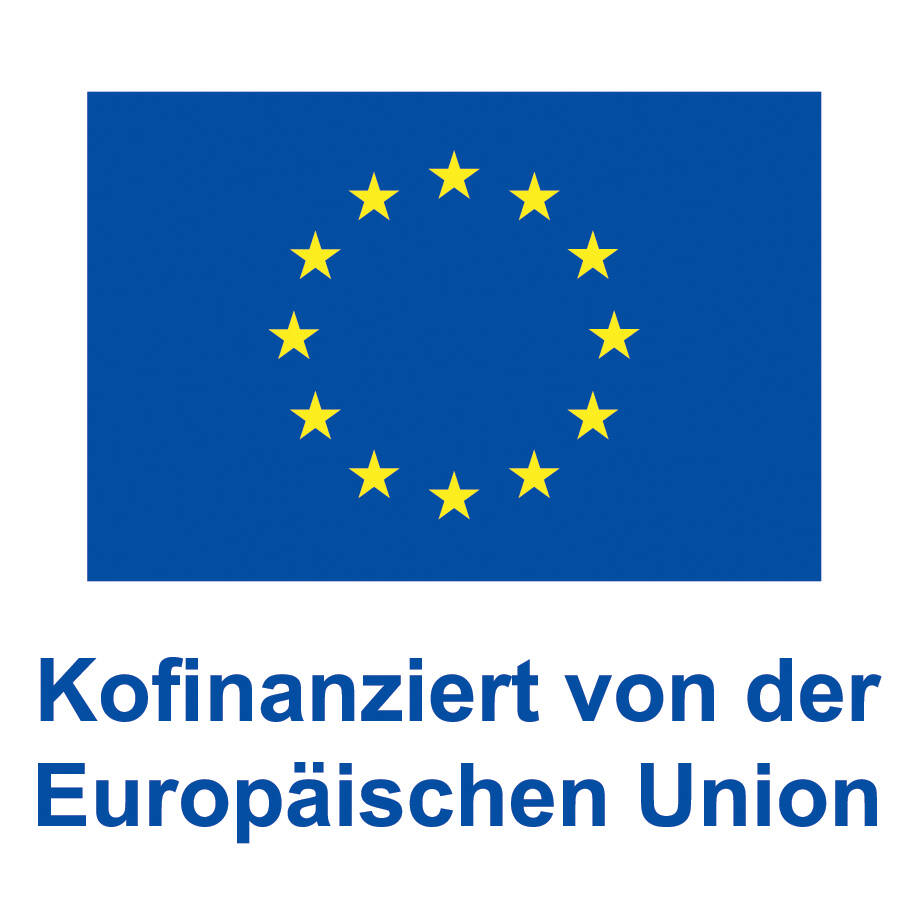

EPO Berlin-Buch will receive funding from the ProFIT program of the Investitionsbank Berlin and the European Union (EFRE, Europäischer Fonds für regionale Entwicklung) for participating on a collaborative research project on novel T-cell therapies. This joint project was initiated by the biotech companies HS Diagnomics and TheryCell together with partners from Charités Clinic of Hematology, Oncology & Cancer Immunology and Institute of Pathology.
The project's focus is on the development of T cell receptor (TCR)-T therapies for solid tumors, specifically targeting Pancreatic Ductal Adenocarcinoma, Colorectal Carcinoma, and Breast Cancer. The collaborative effort aims to identify therapeutic TCR’s from patients, ultimately leading to the establishment of both personalized and off-the-shelf TCR-T cell therapies.
EPO Berlin-Buch contributes with its extensive expertise in preclinical evaluation of novel cell and immune therapies for cancer patients. This multi-faceted collaboration holds promise for advancing research and contributing to the development of innovative and effective treatment options for individuals with these challenging types of cancers.
Newsletter January 2024
EPO panel of pancreas carcinoma PDX published in the journal Cancers
EPO has recently published its work on establishment and characterization of pancreas carcinoma (PC) PDX models in the peer-reviewed journal Cancers (Behrens D. et al., Establishment and thorough characterization of pancreatic cancer patient-derived xenograft (PDX) models for molecular analyses and chemosensitivity testing, Cancers (Basel), 2023, 15: 5753, PMID: 38136299).These models were generated in cooperation ...
... with clinical partners from Germany and Italy. By this, 45 PC‑PDX models were generated, which in the majority represent ductal adenocarcinomas (PDAC). The mutational profile of the PDXs, the sensitivity of the models toward standard of care (SoC) drugs gemcitabine, 5-fluorouracil, oxaliplatin, and abraxane, and combinations thereof were analyzed and correlated to the their molecular profile. This was done to reveal potential signatures for response or resistance of the PDAC PDX models to the drug treatments. In conclusion, this published study strongly supports the importance and value of PDX models for improvement of therapies of PC and offers new options for pre-clinical testing of more effective therapies to treat PC. (Weblink)
Newsletter October 2023
The colorectal cancer (CRC) PDX panel of EPO is part of a high impact study on CRC chemoresistance published in Molecular Cancer
Just recently, a high impact collaborative study has been published in Molecular Cancer ( Kendzia S et al. A combined computational and functional approach identifies IGF2BP2 as a driver of chemoresistance in a wide array of pre-clinical models of colorectal cancer. Mol Cancer; 2023, 22: 89, PMID: 37248468 )
on computational and functional analyses, which have used the CRC PDX of the oncotrack initiative, to which EPO has contributed a significant panel of CRC PDX models. The study identifies IGF2BP2 as most abundant in CRC, being associated with chemoresistance and which in conclusion represents a potential therapeutic target. The study supports the great value of CRC PDX pre-clinical models to reveal novel mechanisms of chemoresistance and to design new therapeutic resistance overcoming strategies for CRC. (Weblink)
Newsletter June 2023
New publication on glioblastoma (GBM) PDX models established and characterized at EPO
EPO has just recently published a new study on molecular characterization and chemosensitivity testing of its established glioblastoma (GBM) PDX model panel in the journal Frontiers Oncology.
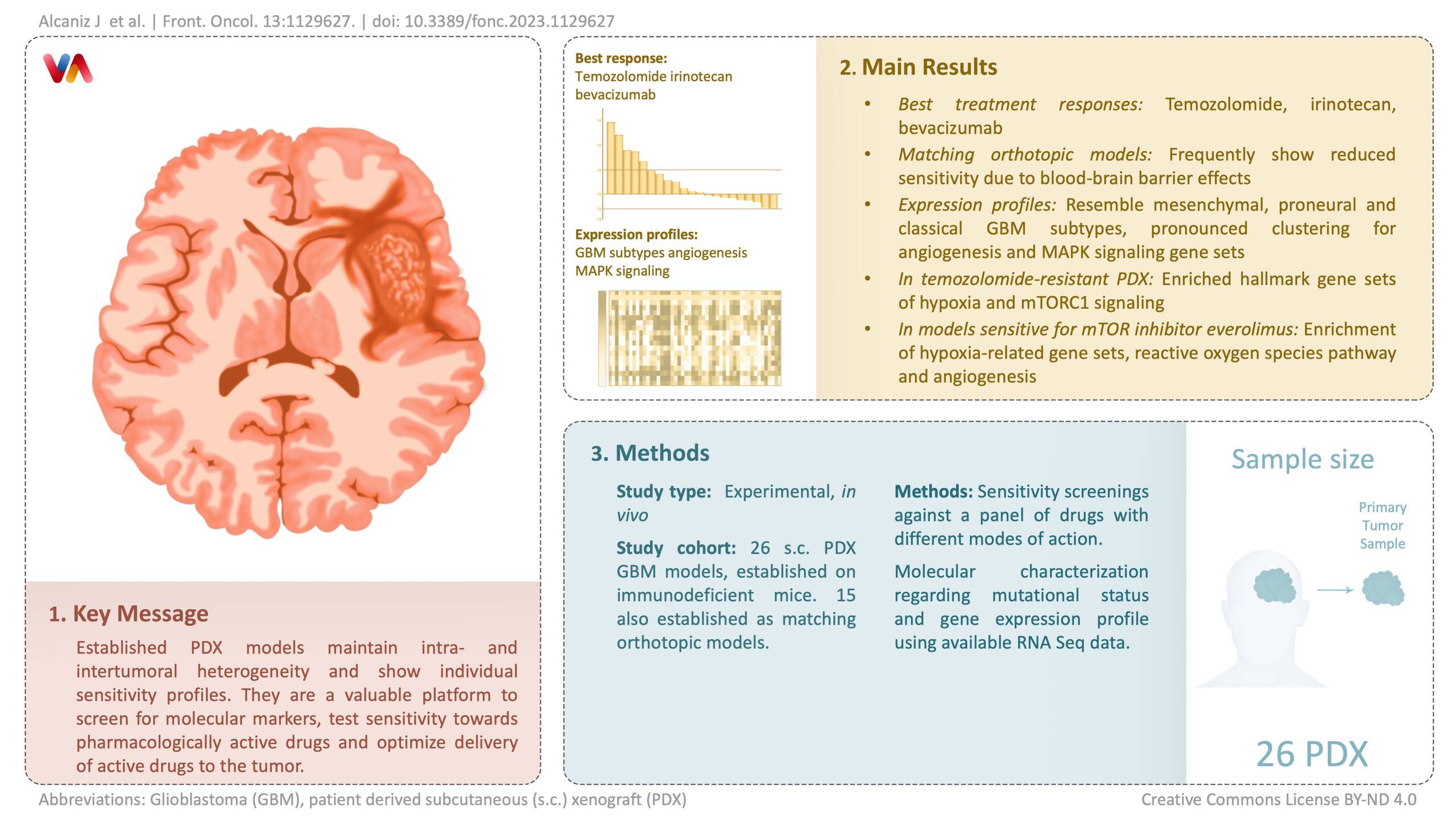
EPO has just recently published a new study on molecular characterization and chemosensitivity testing of its established glioblastoma (GBM) PDX model panel in the journal Frontiers Oncology. Highlights of this study include:
- A panel of 26 patient-derived subcutaneous xenograft (PDX) GBM models was established and screened in immunodeficient mice, providing a valuable platform for studying GBM biology.
- Sensitivity to a drug panel with different modes of action was determined, revealing the best treatment responses for temozolomide (standard of care), irinotecan, and bevacizumab.
- Intracranial models, which mimic the tumor microenvironment in the brain, showed reduced drug sensitivity due to the blood-brain barrier limiting drug penetration to the tumor.
These findings provide significant insights into the heterogenous and complex biology of GBMs and offer a promising avenue for developing targeted therapies. Further research on molecular markers and drug optimization using this platform can pave the way for improved treatment options for GBM patients.
Newsletter February 2023
News on Renal Cell Cancer (RCC) PDX models established at EPO
EPO has recently published the study on thorough characterization of its panels of RCC PDX models in Frontiers Oncology (Gürgen et al., Fontiers Oncol, 12:889789, 2022). In the study, data on molecular ...
analyses of these models and their response toward drug treatment as well as correlation analyses on drug responsiveness and molecular profiles are presented. This publication demonstrates the value of such PDX models for pre-clinical testing to identify new therapeutic targets, molecular signatures and to evaluate novel therapeutic approaches.
Newsletter January 2023
Successful use of EPO’s NSCLC PDX models to develop novel combination therapy
EPO has established a panel of non-small cell lung cancer (NSCLC) PDX models, which currently have been successfully employed to test a novel approach for targeted drug combinations. This was done in collaboration with Stefan Langhammer from Life Science ...
Consulting and published in Communications Biology (Gürgen D et al., Comm Biol 5:59; 2022). Detailed molecular analyses of the NSCLC PDX signaling networks enabled identification of intervention points to more effectively prevent the development of drug resistance of these tumors. Based on this, treatment of EPO’s NSCLC PDXs with a combination of cabozantinib, afatinib, plerixafor and etoricoxib resulted in efficient overcoming of resistance for these tumors and an improved therapeutic outcome. This study is an excellent example that molecular data sets of PDX models can be used effectively for design and testing of novel therapy concepts.
Newsletter April 2022
AACR Annual Meeting 2022 in New Orleans
Dear Colleagues,
Unfortunately, the pandemic situation has just once again prevented us from attending the AACR meeting in person and has forced us to cancel our on-site poster presentations.
After a break of more than 3 years due to the pandemic, we were very much looking forward to meeting you again in person at this year's AACR and to share the latest developments on preclinical tumor models at the posters.
If you are attending the AACR, we look forward to a lively online poster discussion with you via the "AACR Annual Meeting 2022: E-Poster" webpage.
For those not attending the meeting, we are sending the link to our posters here:
Poster#1: Humanized mouse models for ...
Poster#2: Breaking the crosstalk of ...
Please contact us with any question: Turn on Javascript!?subject=AACR%20Annual%20Meeting%20in%20New%20Orleans&body=Dear%20Dr.Jens%20Hoffmann,">Dr. Jens Hoffmann
Best Regards
Jens Hoffmann
CEO